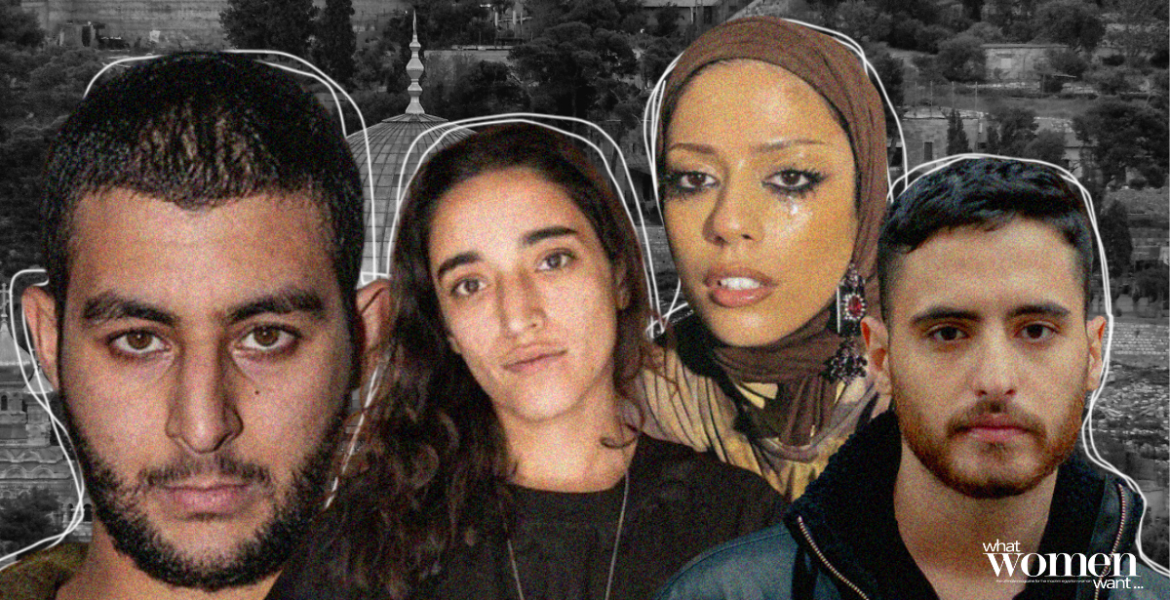Every oppression the world has seen has had one thing in common: It has fought silence and erase the people that it was oppressing. In the late 1800’s, the American settlers illegally overthrew the Hawaiian government. One of their most colonial acts of erasure was to ban the Hawaiian language from being taught in schools in Hawaii. They, instead, replaced it with English. Their violence did not stop at overthrowing the queen, or taking the land. It did not even stop at their abuse of local trade. The Americans understood that to truly erase a people’s history, you must first silence them in every way you can. By taking away their language, their ability to express themselves, you are taking away their identity and their freedom. That parallels exactly what the Israelis are doing to the Palestinian talents.
In times like these, it is especially important to shine the spotlight on Palestinian artists, on Palestinian lives and voices. When the world turns away from the brutal murder of our people, we must always turn to face them. We must hear them when they speak, and make way for their art and their expression. We must amplify the voices that the occupation has done so much to try to silence, to erase, to flatten out completely. These voices that made art when there was nothing to be made.
Annemarie Jacir

Annemarie Jacir is a Palestinian director and writer. She was born in Palestine and raised in Saudi Arabia. Jacir has written and produced over 16 successful films, among them Salt of This Sea (2008), When I Saw You (2012) and Wajib (2017).
Jacir’s work captures the wavelength of complex Palestinian experiences in her films. She does this in a way that goes beyond the stiff reality of Arab representation in the west. Her stories have a heartbeat, they are alive with truth. They are raw, and unfiltered. Her work’s very being challenges everything we were told about the occupation by their propaganda machines.
The reality of dismantling a lie is this: that each member of the community must stand up and do what they do best. They must do it in the name of liberation and truth, and they must never stop doing it. Jacir does this perfectly.
Nemahsis
Via NME
Nemahsis, or Nemah Hassan, is a Palestinian-Canadian pop singer from Toronto, Ontario. She began her career on TikTok as a content creator, and was exploited by a company that hired her for an advertising campaign but did not pay her for it.
Nemah’s first single “What If I Took It Off for You?”, released in June 2021. The song challenges the western attitudes around Muslim women wearing the hijab. It explores the emotional downfall of experiencing a relationship that demands you lose a part of yourself for the relationship.
Nemah’s record label revoked her record deal as of October 2023 after she took to social media to speak up for Palestine. She then posted a TikTok singing a cover of Lorde’s ‘Team’ alongside videos of Gaza pre-aggression. Model Bella Hadid ended up using in her own post speaking up for Palestine.
Mohammed El Kurd

Mohammed El Kurd is a Palestinian poet and activist. He’s most known for his coverage of his displacement of his family home in Sheikh Jarrah in 2021. He was pursuing a Master’s in the United States before returning home to protest the ethnic cleansing of his family by the IOF.
Mohammed’s debut poetry collection, Rifqa, is a vivid account of the displacement, dislocation, and grief in the neighborhood of Sheikh Jarrah. “Rifqa” was the author’s late grandmother, who was forced to flee her house in Haifa. The author describes his own name in one of the poems:
“my name: a bomb in a white room,
a walking suspicion
in an airport,
choiceless politics.”
Mohammed’s work is a stunning introduction to the lives of the Palestinian people, it is, in-and-of itself a miracle that he has found the words to describe what many have deemed indescribable.
Sama AbdulHadi

Sama AbdulHadi is a Palestinian DJ & Producer. Bringing the music out of Palestine, AbdulHadi tours the world with her beats, taking to the stage to create her art. It is technicolor brilliance and in every form of the word Palestinian resistance. In the face of the occupation, Abdulhadi takes up as much space as possible, declaring to the world, loudly, that we are still here.
“The first thing you learn as a Palestinian is that you’re probably going to die. You have to engage a little bit extra because life could be over in 10 minutes.” – AbdulHadi to The Guardian
Shabjdeed

Shabjdeed, or Abu Othaina, is a Palestinian rapper. His song “Amrikkka” is resurfaced in light of the uproaring support for the Palestinian resistance this past month, as the crowds have been playing it all over the world. Shabjedeed has become a symbol of Palestinian resistance through his rap, which has slowly taken over our playlists.


